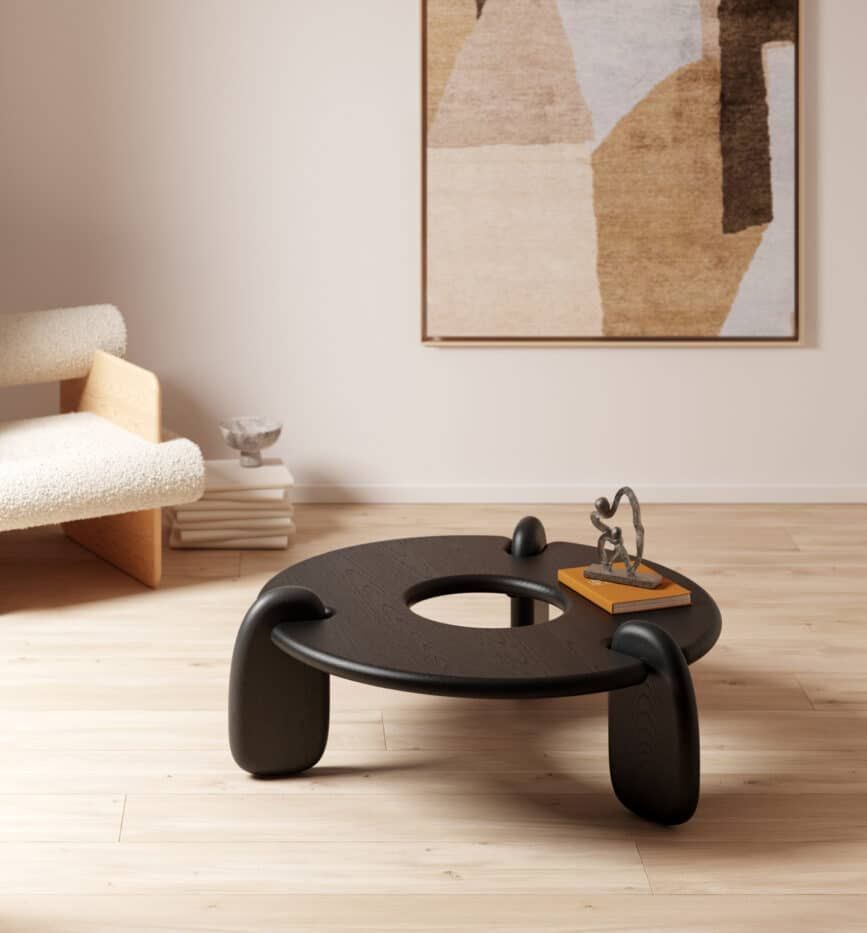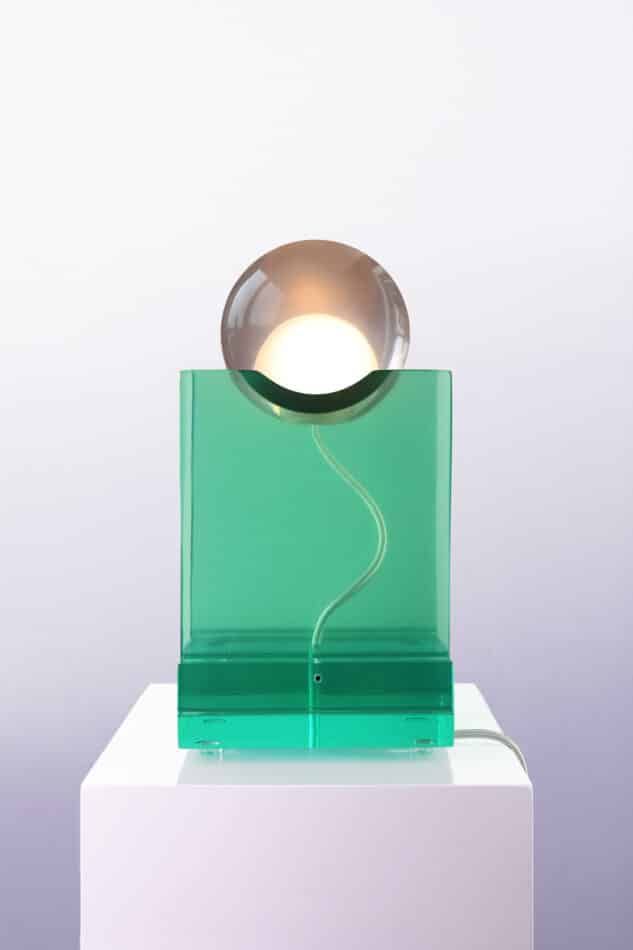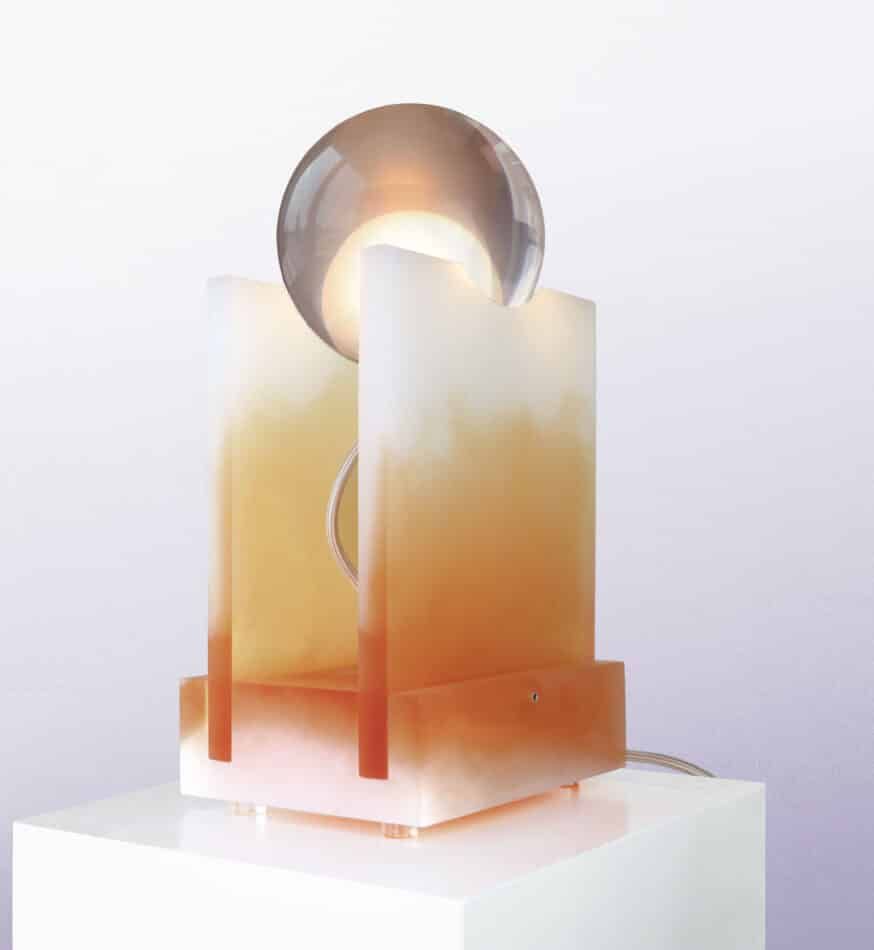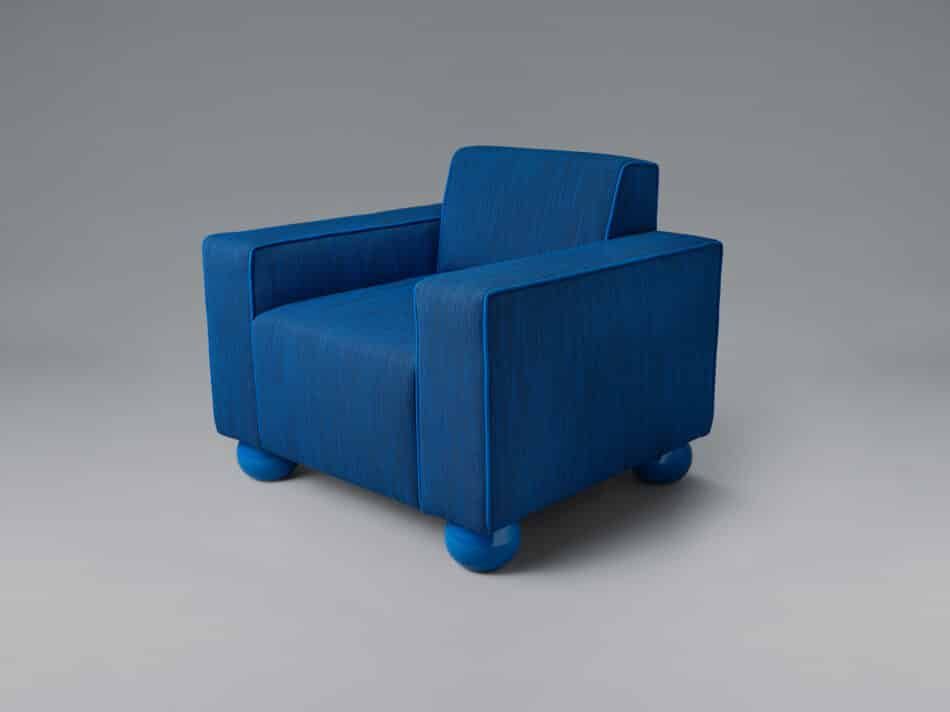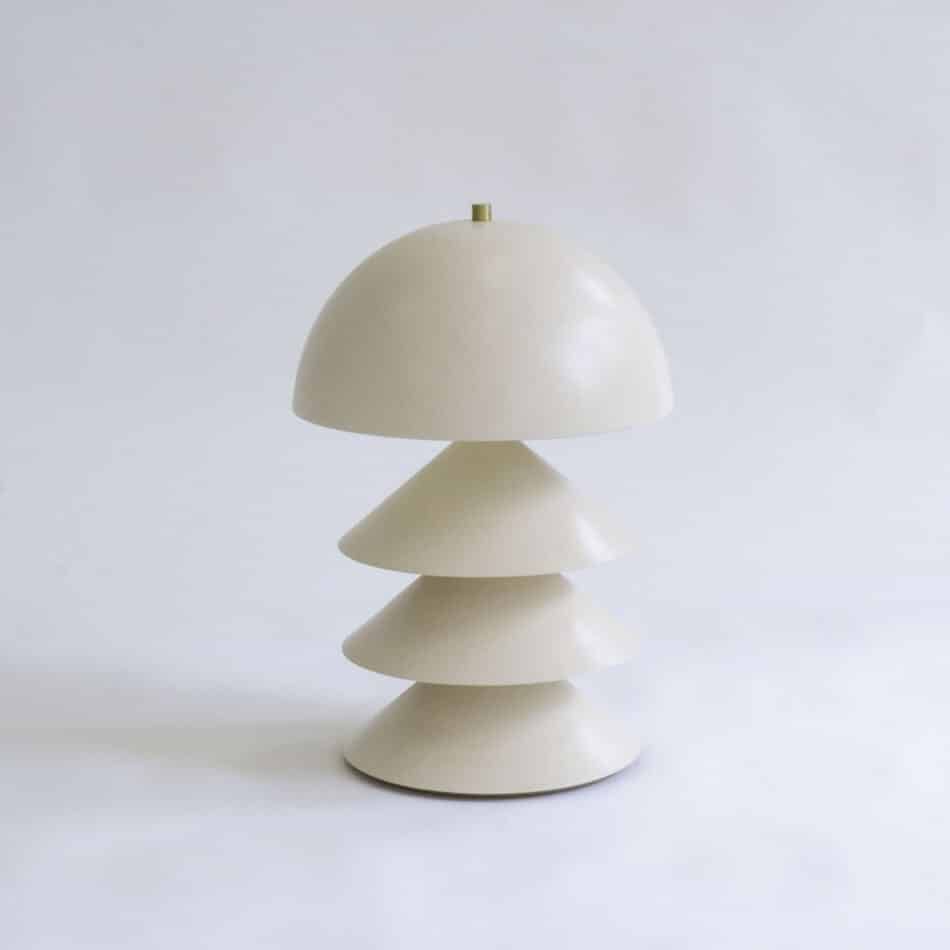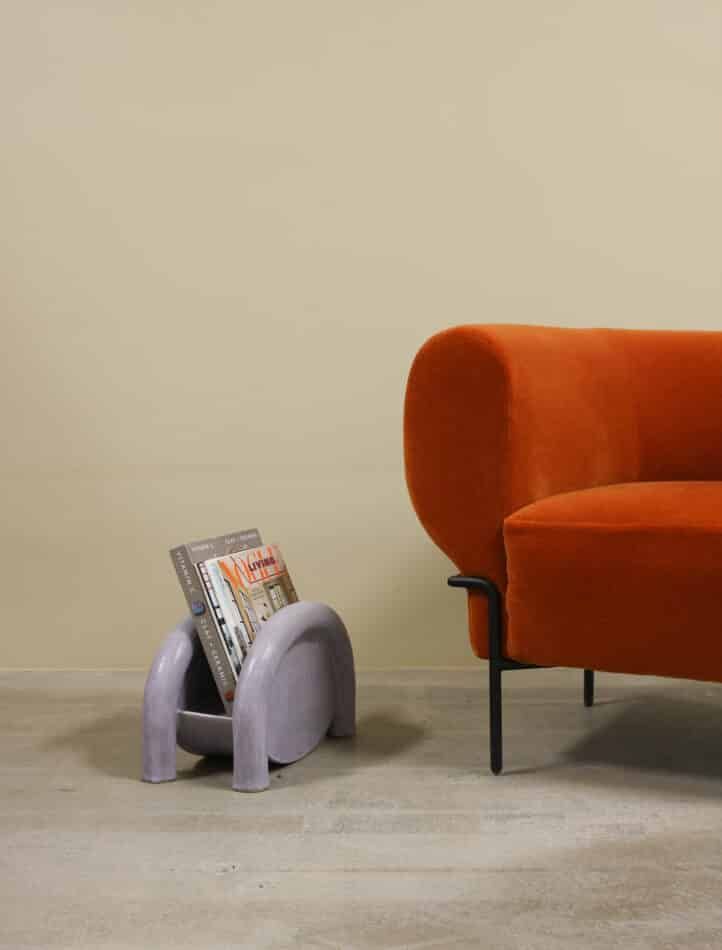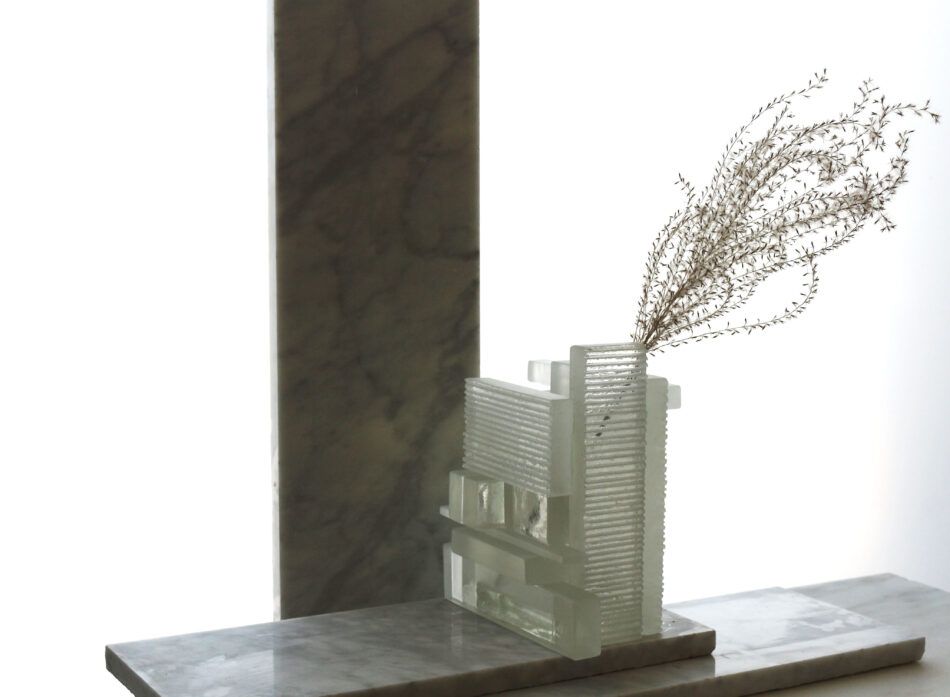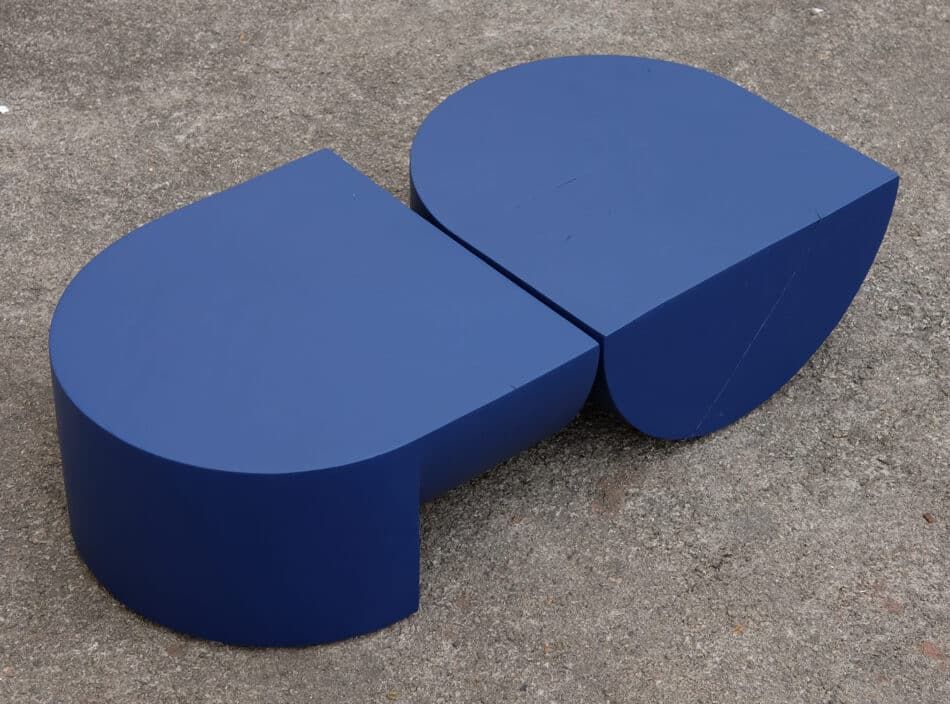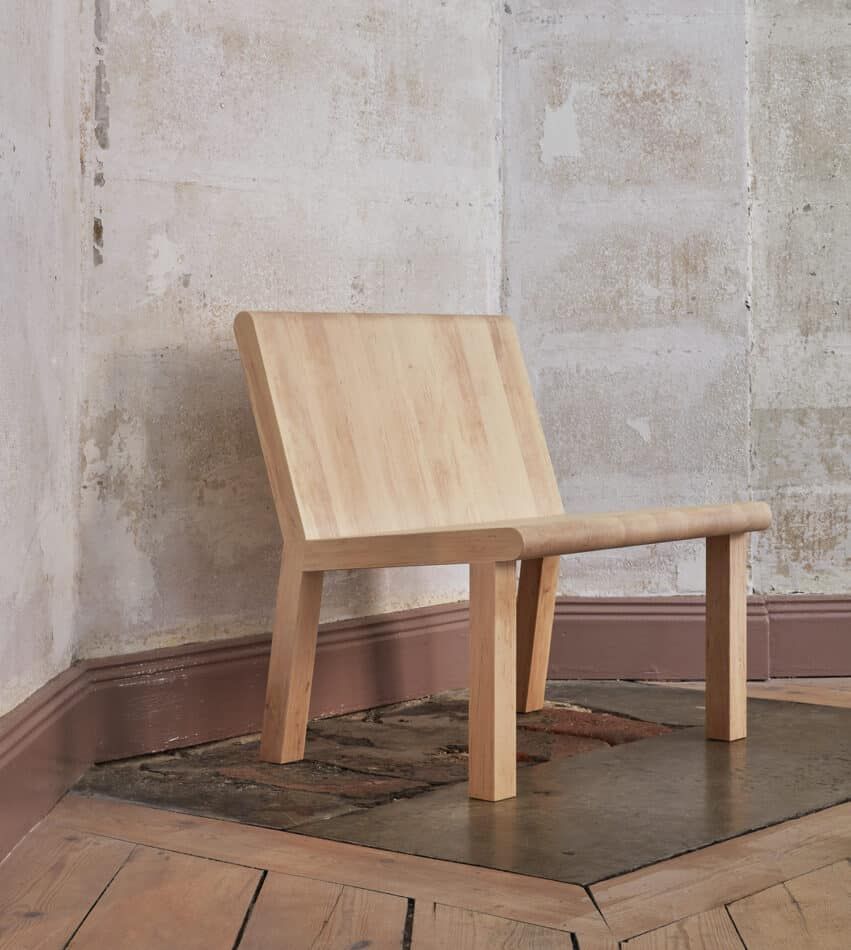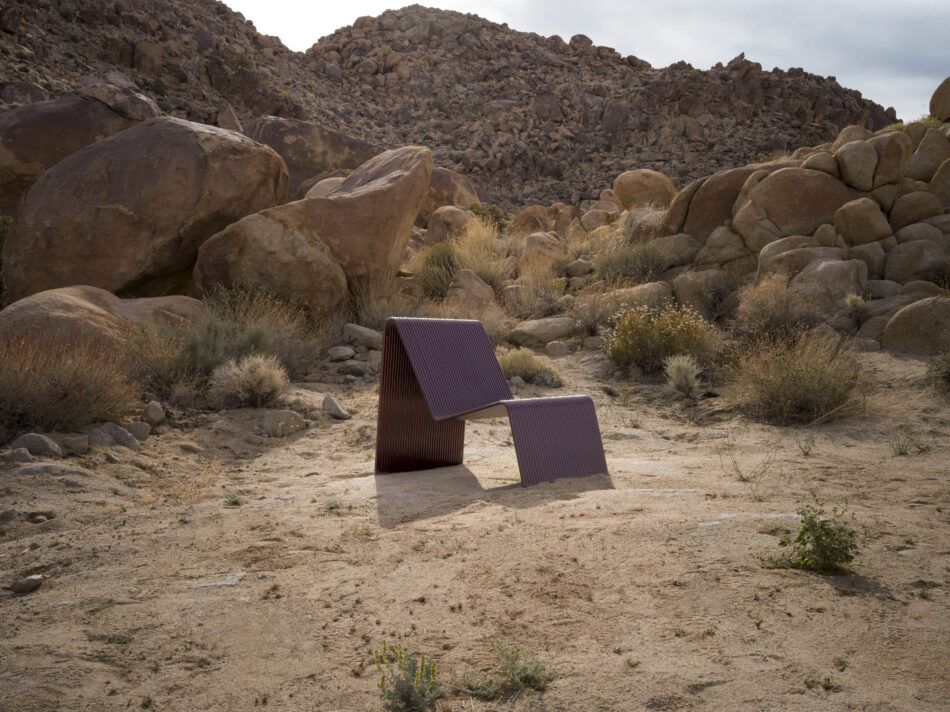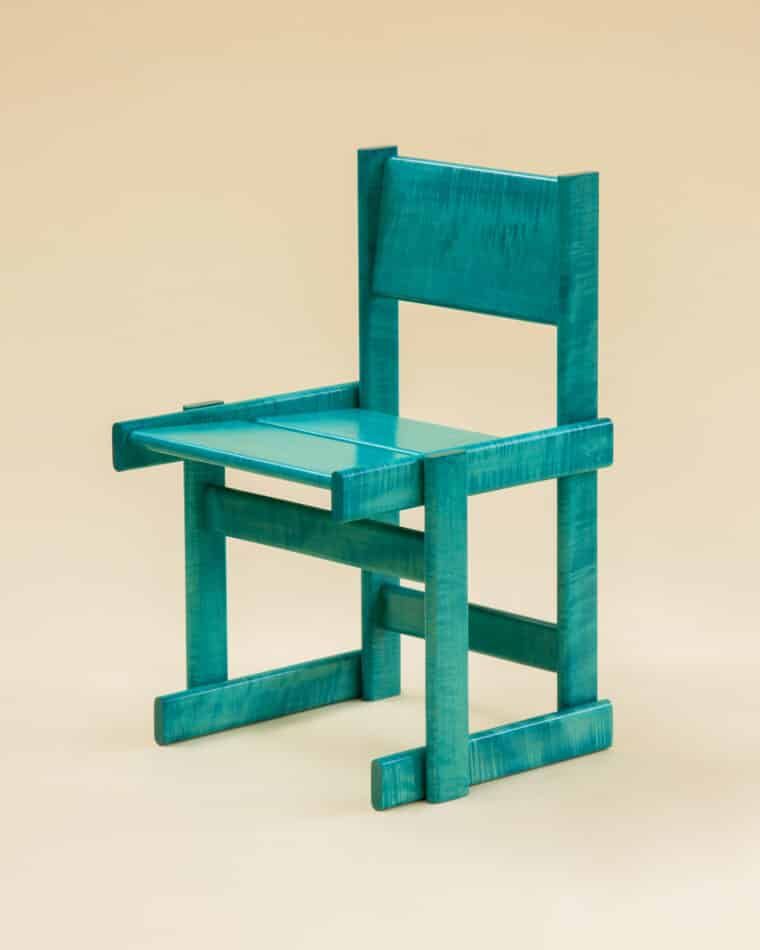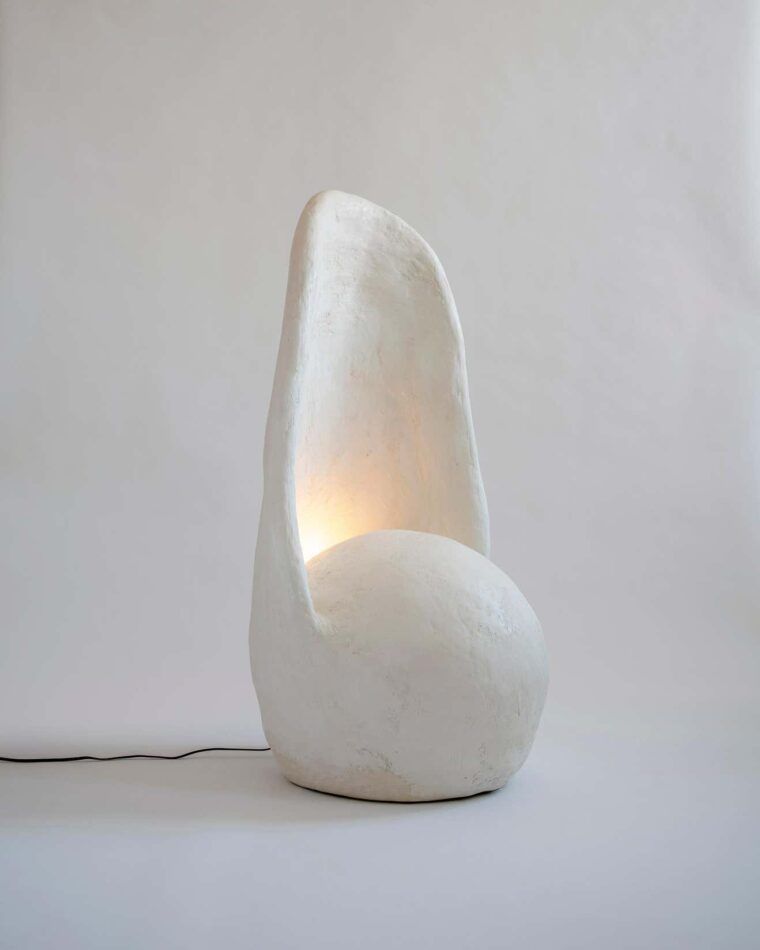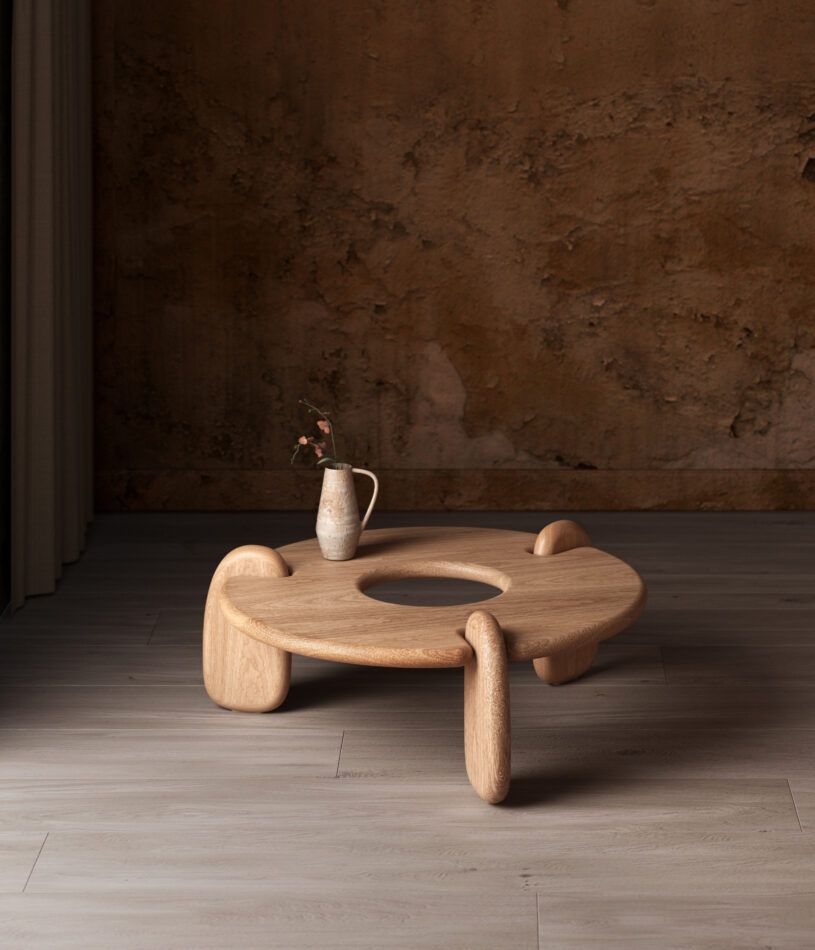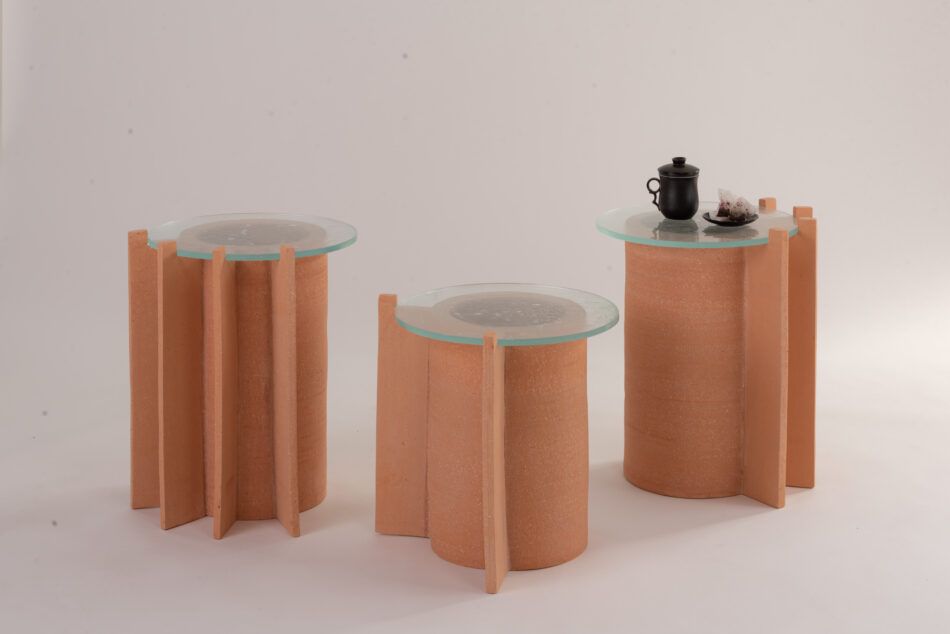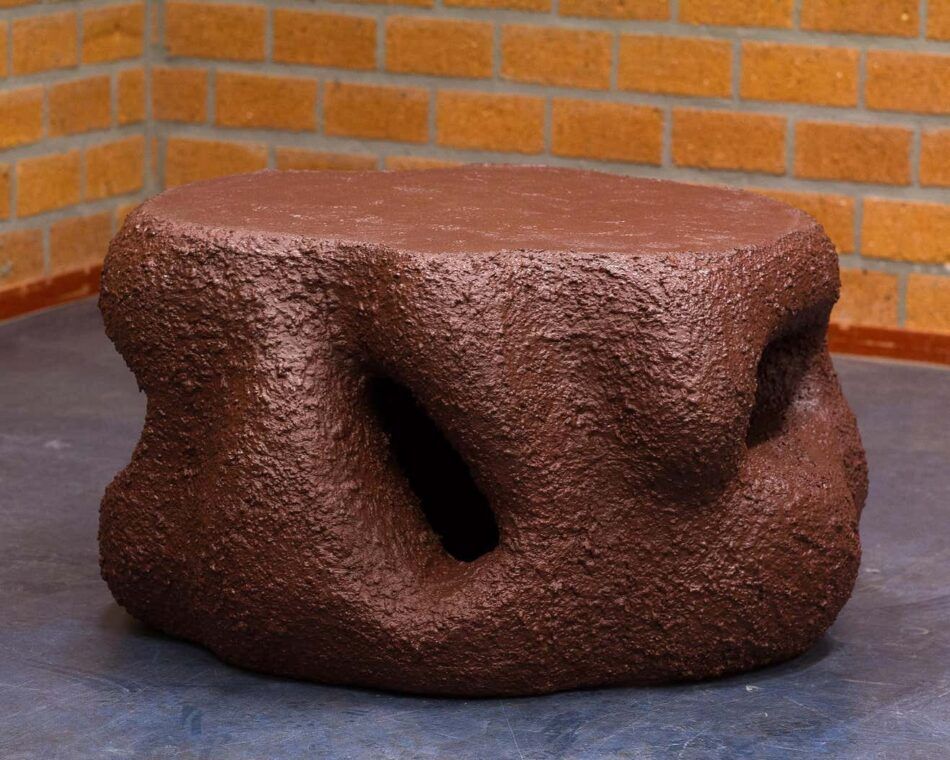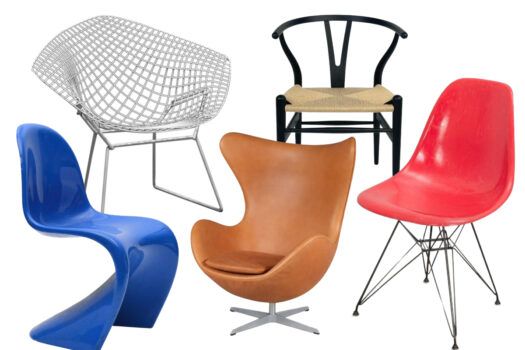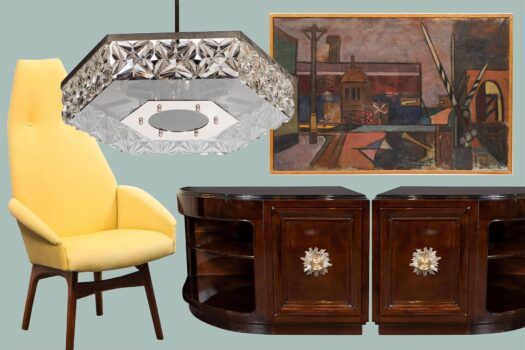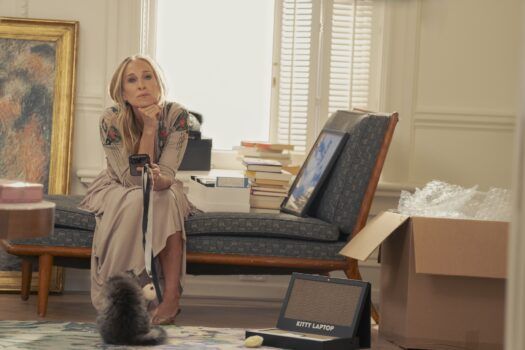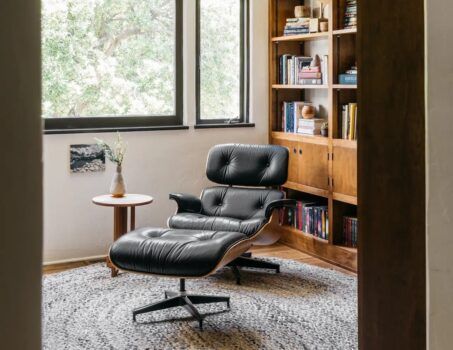The pandemic may have prevented us from hosting our Offsite show this year, but we didn’t want to entirely abandon our role as a platform for supporting the work of independent designers — especially since they haven’t let it stop them from coming up with brilliant new ideas, even without a physical fair to debut them at.
So for 2021, we decided to curate a special collection of furniture and accessories by 16 contemporary designers and launch it exclusively on 1stDibs. The collection includes chairs, tables, lamps, vases, outdoor furniture and more by talents hailing from North America and Europe, many of whom we’ve featured or collaborated with in the past.
Among those included are Nazara Lazaro, a Berlin-based furniture designer who has created a whimsical coatrack and chair for the project; Italian studio Zaven, whose colorful Tubes chair and table are made from recycled magazines; popular Los Angeles ceramist Bari Ziperstein, of BZIPPY & CO, who’s debuting her first magazine rack; and Portland glassblower Robbie Frankel, of BaleFire, who’s expanding his repertoire to include blown-glass lighting for the first time. The collection also marks the debut of work by the newly launched Arvo Ray Studio.
Scroll down to see a sample of works from all 16 designers — and read about some of their inspirations — then click here to shop the full collection.
Adrian Cruz
In 1946, Adrian Cruz’s grandfather started working with resin in his small atelier in Mexico City. He created toys, buttons and household products but also started to experiment with new forms, encapsulating flowers and insects in resin to create magnificent artworks.
When Cruz was a child, he would play with these objects, fascinated by their translucency and the three-dimensional illusion that light creates when it passes through the resin.
After finishing his architecture studies in Italy, he realized that those objects were still on his mind. Today, using the unique and sophisticated technique that his grandfather developed, he mixes colors inspired by the Mexican culture with pure forms in onyx and marble.
“My Rotonda lamp takes its name from the Renaissance-emblematic Villa La Rotonda, in northern Italy, designed by Palladio,” says Cruz. “The square base symbolizes the earth, and the dome symbolizes the universe.
“The lamp itself features a lightbulb held aloft by two resin plates — a weightless balancing act. It’s made using a specially designed spherical mold that has an internal concavity, and its colors are influenced by Mexican folklore.
“In the orange lamp, the sandy effect is obtained by catalyzing the resin with a blend of white sand and salts from the Mayan coast. Natural pigments are then carefully applied to obtain the gradient effect. The orange tone recalls the cempasúchil flower, or Mexican marigold, which symbolizes light reborn and is used during Mexico’s All Saints celebration on November 1 (also my birthday).
“The green lamp recalls the emerald and turquoise hues of the Mayan coast.”
Another Human
Another Human is the practice of the multidisciplinary designer Leah Ring. She honed her aesthetic over the past decade working in high-end interior design and founded her Los Angeles–based studio in 2017.
Drawing inspiration from sources ranging from the Memphis Group to outer space, her aesthetic is playful yet highly considered, often blurring the line between design and art.
“The inspiration for my Baby Blue chair happened mid-pandemic when I wanted to make something really comfortable,” she says. “A lot of my work is a bit more sculptural or conceptual, but I wanted to make a chair that hugged you and invited you to relax, read a book, enjoy a cup of coffee — basically engage in all of the small rituals that comforted us during the pandemic, when so much of our daily routine was upended.
“I love the forms of Art Deco upholstered furniture and often look to Art Deco geometry when thinking about my own work (which of course is also inspired by the geometries of the Memphis Group in the 1980s).
“The chair’s form took cues from curvier Art Deco chairs, but it’s also boxy, which felt contemporary and unique to me. I’ve also been looking for an opportunity to use oversize bun feet, and I loved the feeling that this big, boxy chair was being held up by these shiny balls that look like they’re being stretched under the weight of the chair.”
Arvo Ray
Arvo Ray Studio is a Brooklyn-based design and manufacturing company founded in 2021 by Seth Premo. The studio aims to pair uncompromising fabrication techniques with an exploration of materials, finishes and playful design.
“The Junius lamp, the first object I’m releasing since founding my studio, is designed to float in space yet remain rigid and to continually reveal itself as it’s seen from new perspectives,” he explains. “The lamp is constructed with a powder-coated steel shade and body, brass hardware and a cork base. Inside the shade, a surprise of hand-gilded, genuine silver leaf reflects and amplifies the light emitted by the lamp.”
BaleFire


A balefire is a pagan tradition of making a bonfire on the weekly Sabbath: A bale of hay is set ablaze, and the community comes together to do ceremonies, celebrate, create and use this magical signal fire to send messages to brethren far and wide.
BaleFire Glass is a line of sacred art objects designed and handmade by Robbie Frankel in Portland, Oregon. Each object is a sculpture in itself — organic, visceral — bringing glass art into the home.
With more than 10 years of glassblowing experience, Frankel lets the glass guide the process. Through experimentation and nontraditional color techniques, he imparts to his objects a feel and look like no other.
“In my Epiphany vases, the colors swirl and contrasting hues play off of each other, giving each piece its own personality and making each one of a kind, like a painting,” Frankel says. “This vase has a base color of energetic red vermilion, embellished with marbled lavender, yellow, white, magenta and teal. It’s blown and sculpted by hand into a form reminiscent of flowing fabric, narrow at its base and open wide at the top.
“My Vaporum table lamp — a collaboration with Splinter Metalwurks — pushes the boundaries of transmitted and reflected light. Like a captured cloud of interstellar gas and dust, the lamp has a dynamic feeling of movement and volume.
“Available in either Iris Gold or Miracle Blue, the sculpted blown glass can appear one color when the lamp is off and reflecting light from its surface and a different color when turned on, throwing colors and shapes onto nearby surfaces.
“The shade is held by a hand-formed brass base, with a faceted spire of machined brass suspended inside to hold the light source. It’s a sculpture in itself.”
BZIPPY & CO
Founded in 2008 by artist Bari Ziperstein, BZIPPY & CO is known for experimentation and innovation with ceramics. Working tirelessly to develop engineering methods that challenge conventional notions of slab construction, BZIPPY is known for inventive shapes, unique glazes and an ambitious approach to scale.
Over the past decade, the company has produced both intimately sized and architecturally scaled ceramic vases, vessels, lamps and furniture, often made in limited editions.


“A new functional sculpture in the realm of my other work, the magazine rack is a playful, chunky, tubular vessel for everyday objects such as magazines, books and records,” says Ziperstein. “This form nods to my interest in furniture and vessels, my goal having been to create a new type of vessel beyond those used for flowers and plants.”
Hayden Richer
A graduate of the MFA program in ceramics at Cranbrook Academy of Art, Detroit-based artist Hayden Richer’s works focus on the preservation of weight and mass and their sculptural convergence into furniture — emphasizing opposing ideas of voids, removal and form succumbing to pressure, breakage, monotony and weathering.
“My Quarry vase is a cold-work assembled vase made from cast-glass ingot slabs,” Richer says. “It’s chopped and carved to evoke gestures of excavating marble from marble quarries, but through glass, it’s lightened to show its process and appear both massive and delicate at the same time.”
Henrik Ødegaard
Henrik Ødegaard is a Norwegian designer and architect living and working in Oslo. His work spans from expressive forms to material-based tests, often with a hint of fun. In his studio, he mostly shapes and develops wooden objects based on directly tracing his sketches.
The surfaces of the wooden objects are often pushed in a direction where the warm, wooden feeling is kept under a hard visual coating, whether car paint or an imitation of other hard materials. As he makes objects, he saves the leftovers, which gives him the possibility of making new stuff and eliminates waste from his practice.
“Para is a side table made of solid Norway spruce left over from the production of houses,” he says. “With its double-half-moon shape, it can be used alone or put together with its siblings to create a larger constellation. It’s part of a series of objects that follow the same geometric rule, as structural play.”
Kompaniet
Sofia Almqvist is a Swedish designer with a master’s degree from Konstfack. The owner and founder of the Stockholm-based studio Kompaniet, Almqvist has experience in both art and commercial-design contexts, working independently as well as for other companies.
“The Lolo lounge chair’s minimalistic design highlights its craftsmanship and the material’s expression,” Almqvist says. “The generous width, the seat’s angle and the rounded edges make the chair really comfy without being soft. And the proportions are inspired by kids’ furniture — childish yet sophisticated.”
LAUN
LAUN is a collaborative design firm marrying glamour and pleasure with the built world. In 2018, friends Rachel Bullock and Molly Purnell brought together their backgrounds in woodworking, metalworking and architecture to build a practice of enduring spaces and products.
LAUN’s object line harnesses the unique talents of Los Angeles manufacturers to craft timeless, heirloom-quality furniture suitable for both indoor and outdoor use. LAUN’s work is committed to attention to detail in both form and material.
“Simultaneously delicate and bold, our Ribbon lounge chair features layered aluminum tubes that stack together to form a solid array and enable the chair to be produced in custom widths and an infinite combination of forms,” the pair explain. “Our Bancroft coffee table is inspired by L.A.’s Streamline Moderne architecture, and it works equally well by the pool as it does in a formal living room.
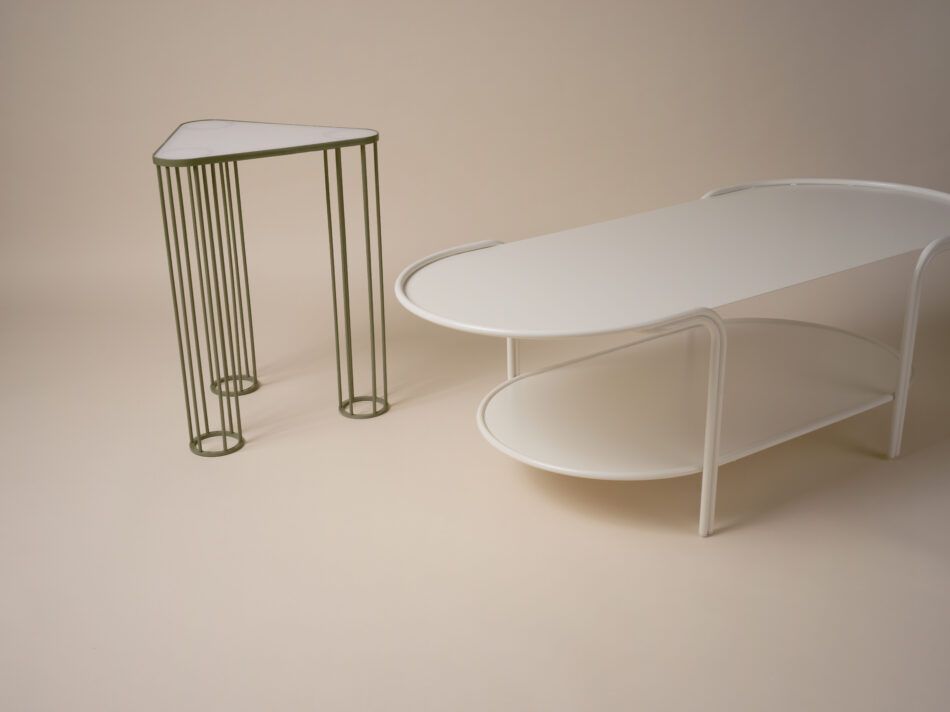
“The Muhly table’s name is taken from the native Californian muhly grass found in the San Bernardino mountain range. It can also be spotted at the Huntington Library Gardens, where it grows near the 19-foot-tall beryllium-copper and brass Bertoia piece Sounding Sculpture.
“The Muhly table seeks to invert expectations of what is solid and what is void, which results in a delicate, grasslike base reminiscent of the vertical lines of a Bertoia sculpture. The triangular top conveniently fits at an angle between a sofa and side chair, but it also works as a stand-alone piece.”
Marco Campardo
Marco Campardo is a London-based designer focusing on production, research and teaching. He has a particular interest in making and material experimentation as a form of critical practice, using it to explore wider narratives about culture, materiality, identity and authenticity.
His work starts with hands-on experimentation and research to question the nature of contemporary models of production. His research seeks to subvert or adapt industrial manufacturing processes to propose an alternative to standardized mass production.
“Bullnose is a solid wooden chair made of a selection of woods,” says Campardo. “This special edition is made exclusively in curly maple, a wood in which the fibers are distorted during growth in an undulating pattern, giving the chair its rich natural texture.
“The shape of the piece was determined by my desire to make a chair based on the same modular section: a rectangle with smooth edges, a bullnose. Four different variations of the module are used to create the chair.
“The challenge of this myopic stubbornness is to create a comfortable chair without any curves, even though our body is organic. Finished with olio di gomito (‘elbow grease’), solid virgin amber wax and pigment, Bullnose exalts and celebrates the endless beauty of nature.”
Mike Ruiz-Serra
Mike Ruiz-Serra’s Pulp furniture is made from plaster and recycled paper pulp, but think of it less as papier-mâché and more as fiberglass — used throughout history to build structures and boats.
The New York designer resurrected the technique and experimented with it until he achieved maximum structural integrity, giving his hollow, monolithic pieces a hard, stone-like surface. Colorful nontoxic dyes make them look less like paper, too.
Ruiz-Serra plans on using his practice to further explore unique takes on natural materials and to continue implementing production techniques that predate modern history.
“My first collection started as an exploration into the structural characteristics of paper-pulp-reinforced gypsum,” he says. “It now exists as a series of open editions that are manufactured using a mixture of molded gypsum and/or manual layups over inflatable molds.
“Like all of the pieces in the collection, the Holon XL floor lamp is finished with shellac, a nontoxic and natural finish. This gives the gypsum a slightly warm, bone-like white color.”
Nazara Lazaro


After studying interior design at the Istituto Europeo di Design in Madrid, Nazara Lazaro traveled to Japan, where she stayed for almost two years, learning about Japanese woodwork, architecture and exhibition design.
Since 2014, she has been based in Berlin, working as a freelance interior and product designer, 3-D artist and creative director.
“My first series, the Crooked Collection, was all about asymmetries,” says Lazaro. “This one is all about pure geometric shapes — the triangle, the circle, the sphere, the pyramid.
“I wanted to allow myself to play a bit more this time, and so, I took inspiration from expressive and playful design movements from the 1980s as well as early avant-garde artists. To keep it simple and aligned with my previous designs, I decided to leave the powder-coated steel pieces just plain white.”
Objects & Ideas
Di Tao and Bob Dodd founded Objects & Ideas as a Canadian design practice in 2015 in order to pursue their vision of a transformative design process, one that could turn their unique ideas and concepts for furniture and homeware into objects of desire. Their mission, as designers, is to enable furniture to speak for itself, and to inspire people to use, love and touch it every day.
“Taking inspiration from Neolithic stone circles, our Henge coffee table is supported by three solid-wood pillars that are notched into the slab-like disc surface to produce a piece that is deliberately sculptural,” they say. “The soft, organic shape of both the pillars and the halo formed by the disk adds a lightness to the solidity of the wood.”
Peca
Since 2007, designer and studio director Caterina Moretti has infused the Guadalajara, Mexico–based Peca with her unique ability to work with natural materials, explore texture and form and bring nature indoors in surprising ways.
Collaborations with local artisans and invited designers have contributed to the spirit of Peca, resulting in a catalogue that is rich in both tradition and innovation.
“For the Impronta terracotta duo of tables, I was invited by my friend the Australian designer Andrew Carvolth to reinvent his pieces using traditional Mexican craftsmanship and materials,” Moretti says. “The cylindrical tables each rise to a different height. One bears two decorative fins while the other table has four.
“Each is topped by a piece of signature repurposed fused glass — a window from which to contemplate the union of form, color and matter.”
Tellurico
After graduating from Design Academy Eindhoven in 2017, Francesco Pace founded Tellurico, a multidisciplinary design studio specializing in objects, spaces and installation design. The investigation of alternative solutions through the study of folklore, together with the relationship between crafts and the environment, is at the center of Tellurico’s practice.
What binds the objects of a place to the characteristics of the place intertwines historical, geological and social elements, as well as the uniqueness and simplicity of everyday life. It is an always-expanding field of investigation, as endless as the ways to live.
“Ollain is my latest collection, where each piece represents a reinterpretation of the Italian craft of stucco,” Pace says. “During the process of making it, an inner structure of EPS foam is carved by hand. Then, a mixture of jesmonite and processing waste is added, creating an organic and unique texture.
“The Ollain coffee table is a fully functional sculpture, with a contemporary design aesthetic ideal for a modern design house.”
Zaven


Zaven is a Venice-based design studio founded in 2008 by Enrica Cavarzan and Marco Zavagno. They operate at the crossroads of product design, graphic design, interior design and art direction.
For Zaven, design is an analytical process: Each project is driven by extensive research, taking form in the final product. Whether it’s an object of everyday use or a visual-communication project, Zaven always aims for formal clarity. The studio has initiated numerous collaborations with creatives from different contexts and holds classes and workshops in various universities, academies and design schools.
“Our Tubes series was initiated during lockdown in the spring of 2020, when we were both stuck at home,” say the duo. “We decided to build a new piece of furniture for our living room using the material we had at our disposal — mostly paper from old lifestyle magazines.
“Back in the studio, we decided to develop the project and investigate it using various types of objects. The result is a series of elements that open our imagination to different perspectives, and a collection of furniture entirely made from recycled and recyclable materials.”
This piece was originally published on Sight Unseen’s website. Sight Unseen cofounders Monica Khemsurov and Jill Singer are former editors of I.D. magazine, as well as freelance writers, curators and design consultants.
